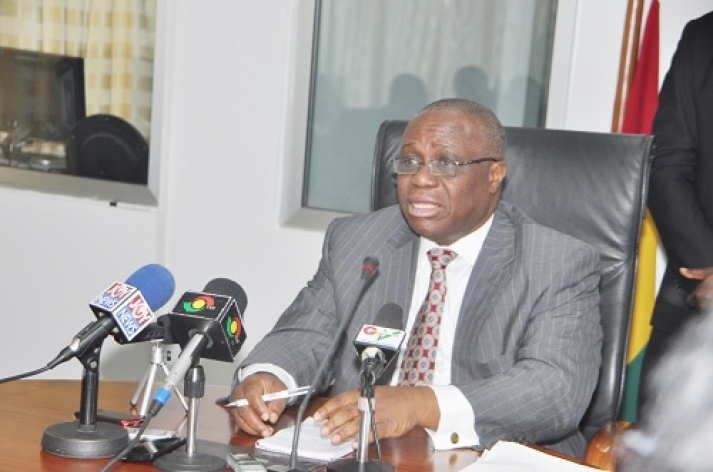
Innovative methods and adaptable structures are helping children in Ghana to get the education they deserve. Crown Agents’ Donato Pezzuto reports
In May 2015 leaders from 160 countries gathered in South Korea for the World Education Forum, to develop a framework for action on education that will guide the achievement of the United Nation’s Sustainable Development Goals. This is considered the most important meeting on education in a generation and concluded with an important political declaration that puts equity and learning at the heart of an ambitious and aspirational education agenda.
While school enrolment has improved over the past 15 years, the world has failed to meet the goals of universal primary education, with 58 million children of primary school age still reportedly out of school. Implementation of the Education for All goals and the education-related Millennium Development Goal has failed to prevent the most disadvantaged children being left behind.
As the international community that gathered in South Korea is drawing on lessons from the past 15 years and preparing for the future of education, we reflect on some of the lessons that Crown Agents has learned by helping the Government of Ghana reaching its most marginalised children.
School participation in Ghana has increased substantially between 2003 and 2008 but despite these significant gains access to education is still inequitable. Several barriers work in combination to deny children an education – especially those in the most deprived areas of northern Ghana.
The main reason why children are out of school is the high cost of education for families, compounded by the loss of income from a child’s labour. Poverty usually interacts with socio-cultural factors, such as early marriage and child fosterage, along with supply factors such as shortage of schools and other inputs, to increase disadvantage.
Over the years Ghana has introduced policies that sought to make basic education more accessible and in 2005 introduced Capitation Grants to abolish school fees. Although this scheme led to a surge in enrolment, a significant number of children from disadvantaged backgrounds and those living in rural areas still do not attend school. The question remains whether universal basic education can be achieved by relying exclusively on the expansion of public systems or other resources need to be mobilised.
The answer is in non-formal education programmes, which can provide ‘second chance’ education for out-of-school children and expand education to areas beyond the reach of the mainstream public school system. One of these non-formal programmes is complementary basic education (CBE), which has been tried successfully in Ghana and other countries.
Complementary programmes improve access to basic education in countries with large out-of-school children populations, bridging formal and non-formal education to allow pupils to return to mainstream public school. These are community-led programmes implemented through partnerships between communities, civil society organisations and governments. Local management best serves the needs of the communities and helps to overcome certain limitations of formal education.
A model of CBE has been implemented in Ghana for 15 years on a limited scale and with Danish financial and technical aid. Evaluations have found it to be effective and efficient in helping to enrol excluded children from underserved communities into public school. Part of what makes this model work is that children learn in the language spoken at home and the curriculum is more limited and focused, delivered through materials that are locally relevant in terms of language and content. In only nine months it covers the language and maths instructional objectives for grades one to three.
In 2014, CBE was formally written into government policy, to ensure access to basic education for every child in Ghana. CBE classes are organised and managed by NGOs, working with communities and the government. The programme is financially and technically supported by DFID and USAID working through Crown Agents (in partnership with Associates for Change and CFBT) to expand enrolment, and prepare the country to take the lead. There are valuable lessons that we have learned in the process.
• Successful complementary models grow from the culture, context and the people they serve in the communities and depend on effective, enduring and innovative partnerships between local civil society organisations, communities, government and other funding agencies. All parties need to come to an understanding about the roles, responsibilities and resources each can provide.
• Quality training and voluntarism are essential for successful expansion. Training helps to transfer expertise and values and to maintain standards, ensuring that these assets are not watered down as the programme expands. It is vital to the success of the complementary programmes since the lessons are taught by local volunteers and not qualified teachers.
• The ethos of supportive supervision and monitoring applies throughout the organisational structure of the programme. At all levels, the emphasis is on frequent field visits, meetings and coaching. The central management unit spends a lot of time tutoring project staff in the field and hearing people on the receiving end of the programme’s support.
To achieve the goals of social justice in an era where governments can’t spend, it is essential to mobilise resources from the public, private and non-profit sector, developing and regulating local partnerships deeply rooted in the communities they serve.
Donato Pezzuto is Crown Agents’ Deputy Practice Lead for Governance and State Building and is Project Manager of the Ghana CBE work for Crown Agents.



